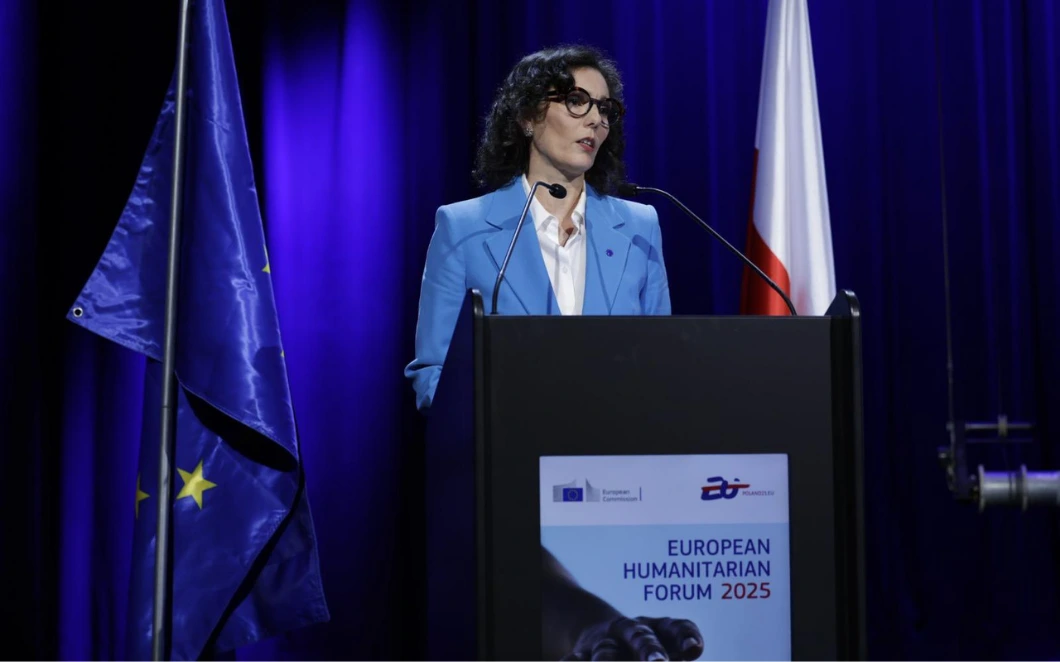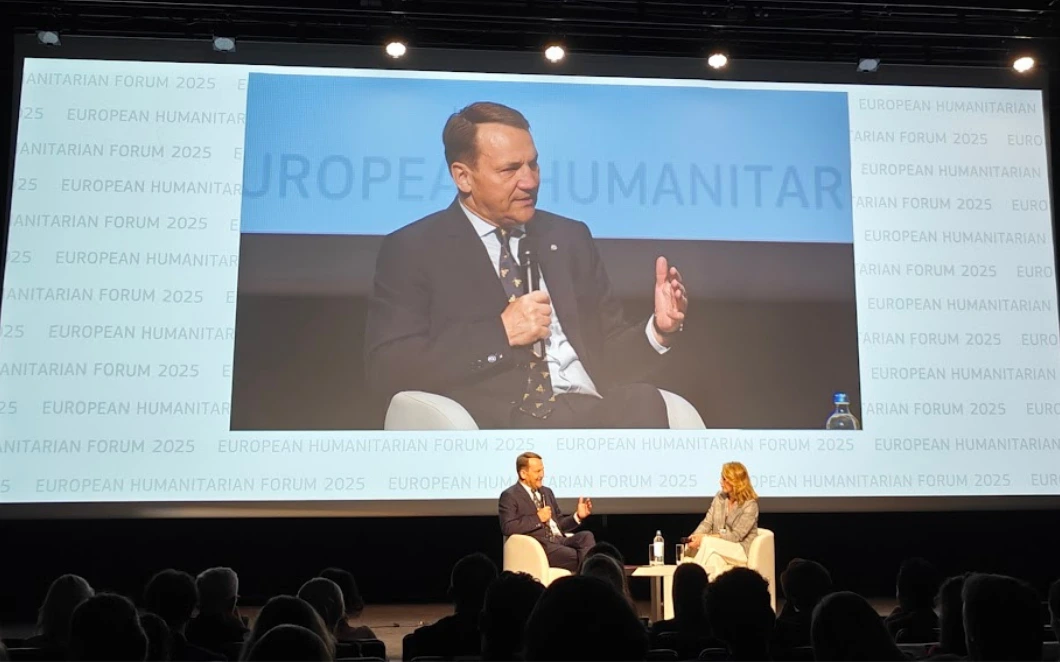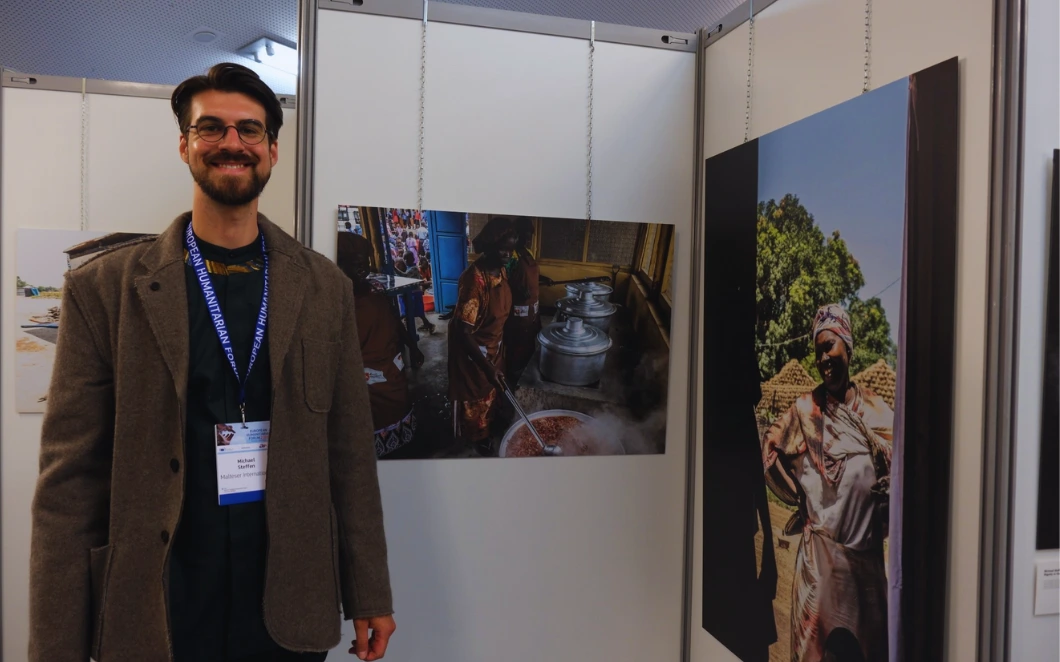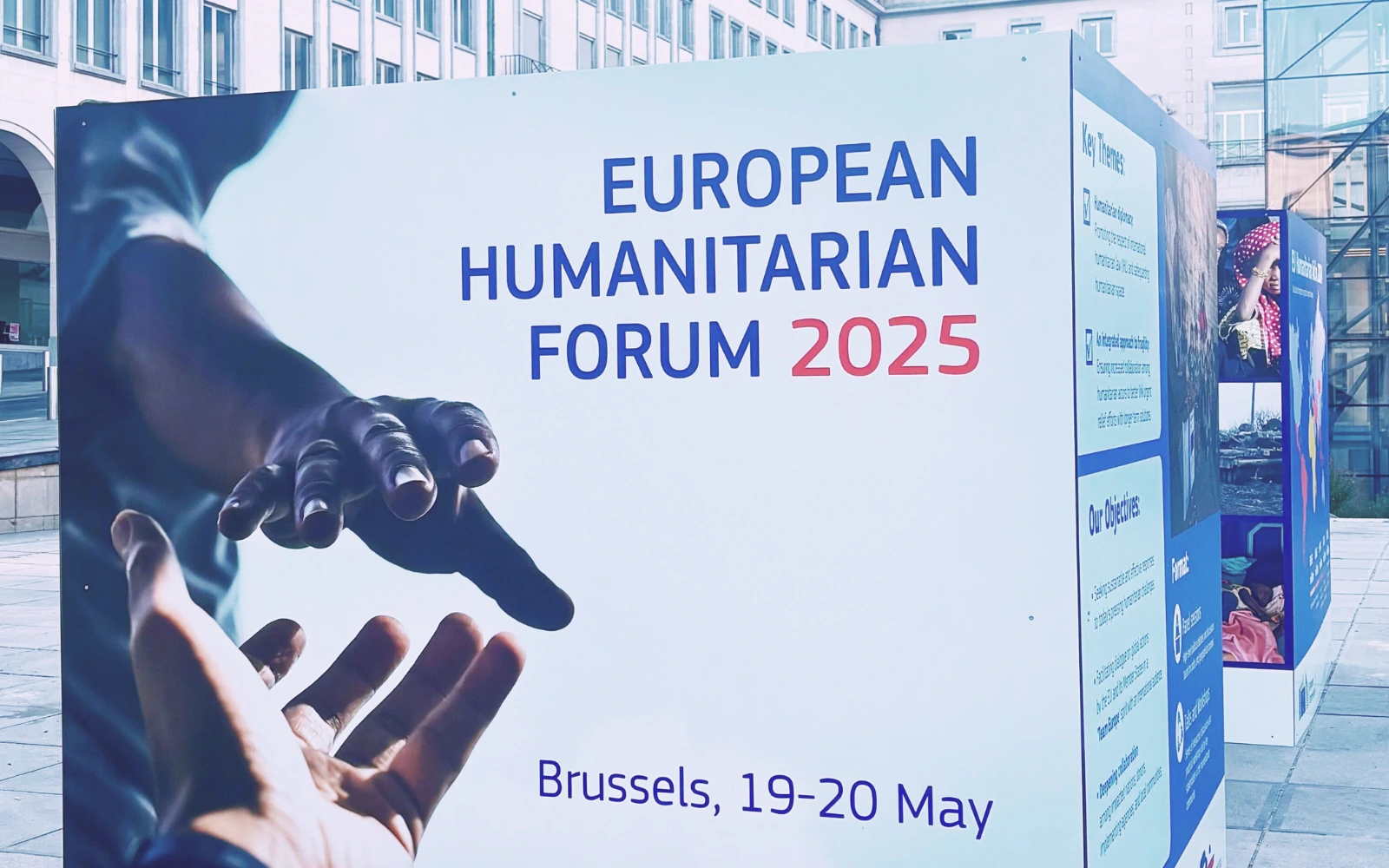The European Humanitarian Forum 2025 (EHF), co–hosted by the European Commission and the Polish EU Council Presidency, brought over 2,300 participants to Brussels at a moment of deep strain – and great expectations – for the global humanitarian system.
Amid record needs and shifting geopolitics, the Forum reaffirmed the EU’s role as a principled humanitarian donor, actor and policymaker, highlighting an ambitious €2.3 billion funding pledge for 2025 and promoting a more integrated approach to fragility. In parallel, the Forum positioned humanitarian diplomacy as an increasingly vital tool to protect civilians, safeguard access, and raise awareness in an era marked by protracted conflicts and shrinking humanitarian space.

Fragility in Focus
At the heart of the Forum was a shared recognition: fragile contexts are growing in number and complexity. These are environments where conflict, displacement, governance breakdown and climate stress overlap – and where conventional aid models often struggle. Fragile contexts not only receive less investment, but also face major challenges in sustaining development gains and accessing predictable support. Crises in Gaza, Sudan, and Afghanistan – all prominently discussed at the Forum – exemplify these overlapping vulnerabilities. In each case, humanitarian needs remain urgent, while access, protection, and political will are increasingly constrained.
In response, the European Commission committed to developing a comprehensive EU approach to fragility by 2026, aligning humanitarian, development, peace, and foreign policy tools to support local actors more effectively and better link short–term relief with long–term solutions.

A Renewed Emphasis on Humanitarian Diplomacy
The Forum also made clear that humanitarian diplomacy is no longer optional – it’s becoming a frontline tool. In an era marked by geopolitical volatility, access restrictions, and violations of international humanitarian law, diplomacy is increasingly required to safeguard humanitarian space, negotiate access, and defend the neutrality of aid.
It includes not only high–level political engagement, but also coordinated efforts to elevate humanitarian principles across diplomatic channels – ensuring that civilians, especially in contested areas, remain protected, and that aid actors are enabled rather than blocked.
Protection and Dignity at the Margins?
While the Forum delivered strong political messages and practical panels – from anticipatory action to duty of care, from climate security to civil–military coordination – a quieter question lingered across the side events and coffee breaks: In the drive for speed, scale, and visibility, are we losing sight of quality?
Across several sessions and informal exchanges, topics and terms like saving lives, humanitarian footprint, access and delivery dominated the official agenda. Meanwhile, themes such as communities’ voices, accountability, and safe, dignified, and people–centered programming appeared less frequently – despite their importance to humanitarian legitimacy and long–term impact.
It is here that NGOs have a crucial role to play. Under institutional and financial pressure, civil society actors remain among the strongest voices for principled engagement – ensuring that the how of humanitarian action remains as important as the what.

A Forum Reflecting the Realities of the Sector
The European Humanitarian Forum 2025 provided a high–level, forward–looking platform – reaffirming EU leadership, introducing new frameworks, and fostering collaboration across the sector. At the same time, it mirrored the realities shaping humanitarian work today: more frequent and severe crises, reduced funding, shrinking access, and the constant tension between cooperation and competition – all while trying to uphold quality under pressure.
As systemic reforms move forward – including the broader Humanitarian Reset agenda – the real test may lie beyond pledges and panels: in how firmly the sector can stay rooted in principle, uphold dignity, and speak out for accountability, even when those values aren’t the loudest in the room.
